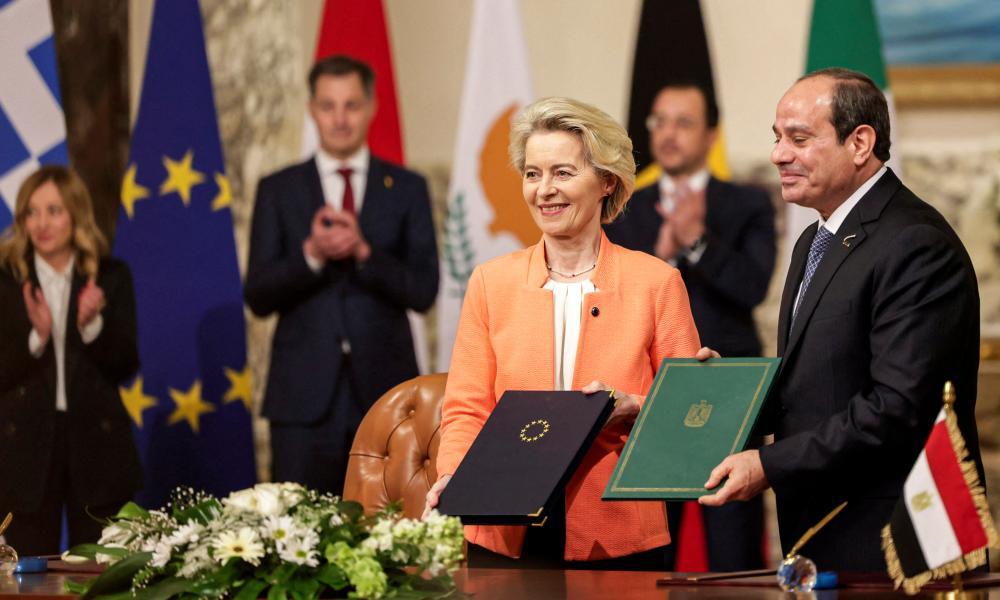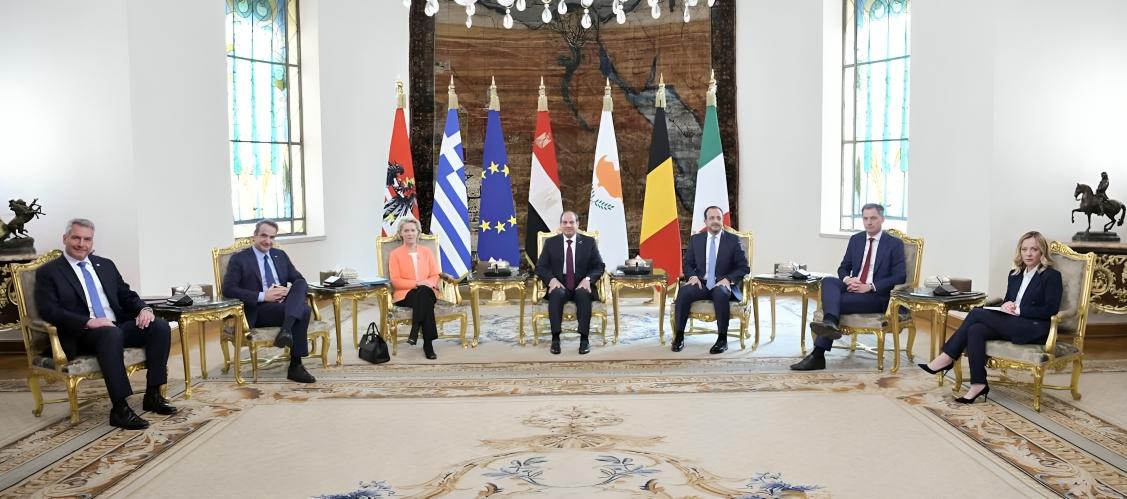EU - Egypt strategic partnership and implications for North Africa Money for stability
On March 17, The European Union announced a 7.4-billion-euro funding package and an upgraded relationship with Egypt, part of a push to stem migrant flows to Europe. The agreement lifted the EU's relationship with Egypt to a "strategic partnership" and was unveiled as a delegation of leaders visited Cairo.
It is designed to boost cooperation in areas including renewable energy, trade, and security while delivering grants, loans, and other funding over the next three years to support Egypt's faltering economy.
Egypt, a country mired in a painful economic crisis, finds itself in a challenging position. It shares borders with war-battered Libya and is surrounded by the centres of two ongoing conflicts, namely the Israel-Hamas war in the Gaza Strip and Sudan's war between the regular armed forces and the paramilitary Rapid Support Forces.
Despite these challenges, Egypt has been hosting around nine million migrants and refugees, including four million Sudanese and 1.5 million Syrians, according to the United Nations data. The proposed funding from the EU, including 5 billion euros in concessional loans and 1.8 billion euros of investments, aims to support Egypt in these difficult times.

Indeed, Egypt is a critical country for Europe and maintains an important position in a very difficult neighbourhood. Europe is Egypt’s largest trading partner, while European companies have an extensive presence in the country. The European Union accounted for 29.7 per cent of Egypt’s trade (by volume) in 2019.
European financial packages and investments also provide crucial funding for a variety of projects in Egypt. In the last five years, the West provided Egypt with financial loans through the European Reconstruction Bank (EBRD) and the World Bank.
As a result, Egypt overtook Türkiye as the EBRD’s largest investment destination, receiving more than €2 billion for agribusiness, property, renewable energy, and other sources of power, tourism, and transport projects. Some EU member states, notably Germany and France, provide Egypt with significant amounts of bilateral development assistance and other forms of financial support. Egypt greatly values the partnership with the EU amid political and economic uncertainty, despite some countries' frequent criticism of the Egyptian government, its relations with regional states, and its stance on the Gaza War.
In response to criticism from the EU, the Egyptian government either attempts to quietly contain any controversy or responds with nationalist rhetoric. Despite Europe's continuous support to Egypt, concerns are still high regarding the local government's inability to conduct economic reforms and tackle the harsh inflation rate that causes a mass flood of citizens to other countries.

Earlier this month, the country struck a record deal for Emirati investment, expanded its loan program with the International Monetary Fund (IMF), and sharply devalued its currency. Notwithstanding economic results, Europe has seen Egypt as a valuable partner in confronting illegal migration from North Africa since 2016. However, there has been a surge in Egyptians trying to cross to Europe via Libya, and the EU is already providing support to reduce those flows.
The EU's interest in Egypt goes beyond economic and political considerations. It is increasingly invested in maintaining stability in Egypt, recognizing it as one of the few regional governments with functioning state bodies. This is crucial in a region where many states, such as Libya, Tunisia, Yemen, Sudan, and Lebanon, have quickly become failed states and transit zones for radical extremist groups.
The recent upheaval in the Red Sea, with the involvement of Iranian-backed Houthi rebels, has underscored the importance of Egypt's stability, both for the region and for the EU's strategic interests.
For that purpose, Egypt attempted to diversify partnerships, in particular in the security field, with countries like China and Russia. As a result, Cairo recently purchased sufficient military equipment, which is a vital part of this diversification strategy.








